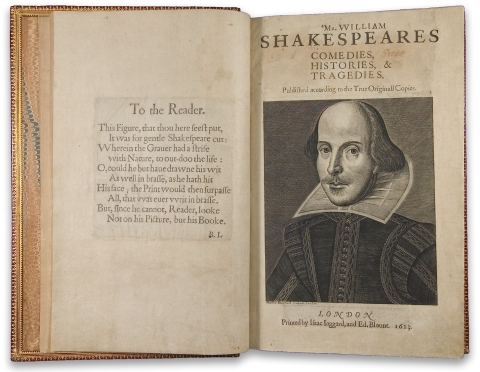
Just a few short years ago, the world of digital scholarly texts was in its primordial stages, and it is still the case that most online editions are simply basic HTML or scanned images from more or less arbitrarily chosen print editions. An example of the earliest phases of digital humanities, MIT’s web edition of the Complete Works of William Shakespeare has been online since 1993. The site’s HTML text of the plays is based on the public domain Moby Text, which—the Folger Shakespeare Library informs us—“reproduces a late-nineteenth century version of the plays,” made “long before scholars fully understood the proper grounds on which to make the thousands of decisions that Shakespeare editors face.”
The scholarly Shakespeare editorial process is far too Byzantine to get into, but suffice it to say that it matters a great deal to serious students which editions they read and the newer, often the better. And those editions can become very costly. Until recently, the Moby Text was as good as it got for a free online edition.
Other online editions of Shakespeare’s works had their own problems. Bartleby.com has digitized the 1914 Oxford Complete Works, but this is not public-domain and is also outdated for scholarly use. Another online edition from Northwestern presents copyright barriers (and seems to have gone on indefinite hiatus). In light of these difficulties, George Mason University’s Open Source Shakespeare project recently pined for more: “perhaps someday, a group of individuals will produce a modern, scholarly, free alternative to Moby Shakespeare.” Their wish has now been granted. The Folger Shakespeare Library has released all of Shakespeare’s plays as fully searchable digital texts, downloadable as pdfs, in a free, scholarly edition that makes all of its source code available as well. Taken from 2010 Folger Shakespeare Library editions edited by Barbara Mowat and Paul Werstine, the digital plays constitute an invaluable open resource.
You will still have to purchase Folger print editions for the complete “apparatus” (notes, critical essays, textual variants, etc). But the Folger promises new features in the near future. Currently, the digital text is searchable by act/scene/line, keyword, and page and line number (from the Folger print editions). Folger touts its “meticulously accurate texts” as the “#1 Shakespeare text in U.S. classrooms.” Perhaps some prickly expert will weigh in with a disparagement, but for us non-specialists, the free availability of these excellent online editions is a great gift indeed.
As you know by now, Shakespeare’s plays can always be found in our collection of Free eBooks.
Related Content:
Free Course: A Survey of Shakespeare’s Plays
Discover What Shakespeare’s Handwriting Looked Like, and How It Solved a Mystery of Authorship
Josh Jones is a writer and musician based in Durham, NC. Follow him at @jdmagness


Don’t forget opensourceshakespeare.com — been around for years!
PlayShakespeare.com was founded with the goal of creating a free and open source set of all Shakespeare’s texts back in 2005, including the entire First Folio.
https://www.playshakespeare.com
Also available on GitHub in XMLformat:
https://github.com/severdia/PlayShakespeare.com-XML
I am a visual artist, I have been working on Shakespaere’s Play, I would like to read free audiobook